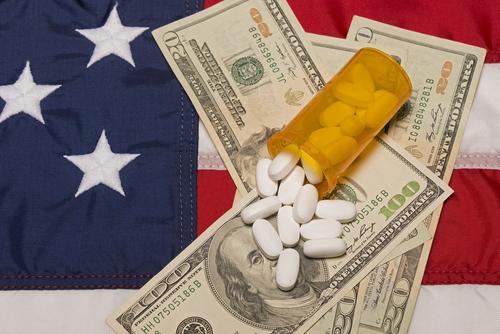
America leads the world in pharmaceutical discovery, and in all scientific and medical discovery really, so we accept that we pay higher prices here and then over time poorer countries will pay less, no differently than if you want to buy a phone the day of launch rather than on sale after the new one comes out.
Given that, why would American companies need any protectionism or preferential treatment? And if we know that's the case, is it always better to buy American?
Before you answer that question, let me provide you with an unsettling statistic. The prevalence in young males of Duchenne’s or Becker’s Muscular Dystrophy in the United States is 1.38/10,000. Based on the 2010 census that is about 3,657 patients. Based upon CDC statistics about 30% of these patients use a steroid, deflazacort, that maintains their mobility by stabilizing their muscle strength.
Until last week the only company making this drug was located in the UK and cost US patients about $1,600 annually.
Then last week, Marathon, a US-based pharmaceutical company which makes orphan drugs – (high need but very small populations, less than 200,000 patients in the U.S. ) announced they were getting FDA approval for their version of deflazacort ,which they priced at $89,000 – a 5,500 percent increase. That would represent an increased cost of about $96 million, and that cost will be borne by you and me; remember that insurance companies and the government get the money to cover these costs from us.
As the Wall St. Journal also noted, use of medications imported from outside the U.S. is, in general, prohibited. One exception is when the drug is not manufactured by an American company, which, until last week was the case for deflazacort. Now U.S. patients must pay these wildly inflated prices.
All the company had to do gain clearance to sell deflazacort in the U.S. was complete an analysis of the old (1990s) trial data and conduct some new studies. And now they are going to make $96,000,000 a year.
For real discovery, $96,000,000 is actually not a lot, a pharmaceutical company might not even make its money back before the patent expired if it took a long time to get approval, that is why novel drugs are priced here. But this didn't involve any new work and the company has not disclosed how much they spent to acquire the trial data or conduct new research. Still, patients are going to now go from spending $1,600 up to $89,000 per year. It's unclear how that is better for anyone except a company.
…
Marathon Chief Executive Jeffrey S. Aronin was an early pioneer of the pharmaceutical -industry model in which companies cheaply acquire older drugs that have lost patent protection and large pharmaceutical firms are no longer interested in marketing. $89,000 is also a list price and no one actually pays that. Marathon predicts that it will only receive 61% of deflazacort’s price because of mandated rebates, patient copay assistance, and free medications. That would reduce their annual income on it to only $58 million.
Yet the FDA still sweetened the deal for this ‘orphan’ drug already produced in the UK for far less cost, by providing a “voucher” that allows it to demand a faster approval decision from the agency on its next drug. Marathon can use the voucher itself, or even sell it to another company.
It sounds bizarre, given the complaints about FDA's plodding approval process, but there is an active secondary market for these vouchers, even though they don't guarantee approval and just speed up the decision. The last purchase of a voucher (August 2015), was for $350 million. The FDA’s orphan drug program also ensures a seven-year monopoly to the manufacturer.
What went wrong? The FDA is the gold standard worldwide, every company wants our seal of approval to get into the U.S. market, so there is a lack of reciprocity with drug approvals by other countries because they are less rigorous. Remember, thalidomide was never allowed in the U.S. for pregnant women, but it was approved in Europe.
However, this is not a new product. Deflazacort has been used in Europe for 20 years as an alternative to prednisone, the commonly used medication in the US, though its use in muscular dystrophy is considered off-label, not approved by FDA and not covered by insurance.
The lack of reciprocity is being manipulated to engage in financial arbitrage masquerading as ethical pharmaceutical development. After a predictable outcry, the company has "paused" the roll out process. They have not sold any of their 'new' product, but wouldn't it make sense to change the rules so FDA time and American money is not wasted when a cheaper, identical version is already being sold?



